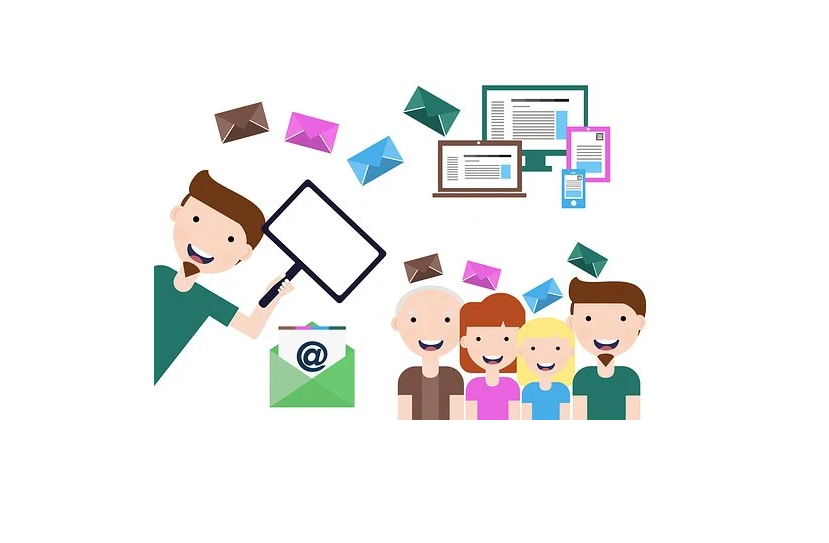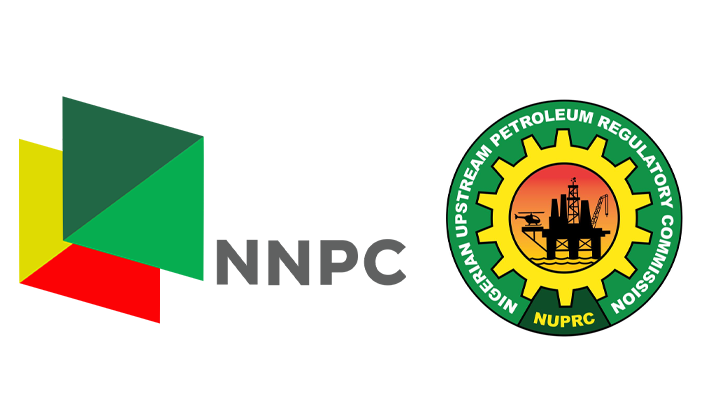General
Effective Lead Generation Strategies You Should Try

“We need more leads”
If you’re in sales and marketing, you’ve probably heard these words or said them to your team.
Rightly so, since growing the business depends on your ability to attract high-quality leads and gradually turn them into paying customers.
For this to happen, you’ll need lead generation strategies that increase brand awareness, generate interest in your products/services, and encourage potential customers to engage.
Strategies that create new opportunities for you to capitalize on and close.
To that end, we have laid out five tactics that may help boost your lead generation efforts.
1. Invest in Lead Generation Software
Sales and marketing teams spend a lot of time collecting and analyzing contact information manually. The process is tedious, time-consuming, and may yield inaccurate results.
Lead generation software makes work easier by automating the process, allowing your team to focus on other aspects of selling.
The software captures a visitor’s information at points of contact, whether that is a visit to your landing page or a document download, etc. You’ll learn how potential customers are interacting with your business and customize their journey accordingly.
Here are some features to look out for:
- Ease of use: look for software that’s designed for marketing teams not web developers or programmers. The team should be able to use the software without referring to or dabbling in code.
- Integrations: your preferred software should sync seamlessly with your existing Martech stack. This will make for effective inter-tool communication and reporting.
- Scalability: software that can grow with you is software worth investing in. The system should have the capacity to handle expanding operations and related needs.
- Analytics: the ability to analyze collected data and generate reports will help you streamline marketing efforts, improve operational efficiency, and improve customer interactions. Go for software that can help you do this.
2. Host Joint Venture Webinars

At some point, you realize that you’ve pitched your products/services to existing audiences and now need to find new audiences to generate sales.
Joint venture webinars are an excellent way to reach new audiences with your message. You partner with brands in complementary niches to pitch to a fresh audience.
Here are ways to make joint venture webinars more impactful:
- Choose the right partner. The best partnerships are those that involve companies that offer complementary products/services, have complementary customers, and audiences that are interested in the partnered event.
- Promote the webinar. Work with your partner to create a promotional kit that ensures your narrative and takeaways are the same – think email copy, images, videos, etc. Choose distribution channels that work for both companies.
- Prepare, prepare, prepare. Conduct dry runs to help the presenters get comfortable with each other, the webinar software, and equipment. The dry runs will help you pick up any technical difficulties that can be dealt with before the big day.
- Follow up. Capitalize on the interest you’ve generated to follow up right after the event and convert those audiences to qualified leads.
3. Create Gated Content

It takes tremendous time and effort to research, compile and package valuable information for audiences.
Putting it behind a gate means those who are genuinely interested in what you’re saying won’t mind trading their contact info for it.
Not only does gating content increase your likelihood of capturing good leads, but also gives you better insights into what prospects are looking for.
Best practices include:
- Create an optimized landing page for the specific gated content. Let the message focus solely on the material you’re sharing to ensure your visitor doesn’t get distracted and leave without completing the action.
- There is more to gated content other than PDFs. Many marketers associate gated content with PDF documents, but these aren’t the only options or formats available. You can create video series, webinars, exclusive access, exclusive communities, templates, and checklists.
- Quality over quantity. A short,information-packed e-book does more for your business and reputation than a hundred-page one full of fluff. Observe proper editing principles and deliver high-quality work.
- Make navigation easy. Use the clickable table of contents, ensure any links embedded on the document work, and use images to make the information more palatable.
4. Make Cold Calls

Research by RAIN GROUP shows that many senior levels buyers prefer to be contacted on the phone. By senior level, we’re talking c-suite and VP buyers—just the group you want to target.
Cold calling provides a platform for tapping into new markets and gaining key information concerning your target market’s needs, challenges, and expectations.
So how about brainstorming your value proposition then getting on the phone to lock in that deal?
Here are some considerations:
- Know what prospects want. Tough? Not really. Buyers are looking for ways to solve their current problems. By sharing detailed information about the features and services your solutions provide, you can influence their decisions.
- Pre-qualify prospects. Now that you know what prospects want, it’s time to pre-qualify them. Develop strong buyer personas to help you understand your target market and identify brands with the potential to turn into customers.
- Prepare for the call. Come up with a script that comprises a strong opener, a middle, and a conclusion. Test different opening statements to find the one that draws in prospects. Your middle should contain key features of your products/services, questions for the prospect, FAQs, and objections. In the conclusion is where you ask for your goal.
- Follow up. Cold calling experts say it takes on average five follow-up calls to get leads to convert. While it’s easy to give up after one or two follow-ups, don’t do it. Persistence is key in this business.
5. Leverage Email Marketing

With over 300 billion emails exchanged daily, email marketing is an effective communication channel between brands and their customers.
B2B sellers use this channel to build relationships, send out promotions, and stay in touch with customers—past, current, and potential.
Having said that, the email marketing technique will only be successful if you have the right contacts and adopt the right approach. This approach includes:
- Updating your email list. An updated and clean list ensures you reach your target audiences with messages that interest them in your offerings.
- Keeping email content concise. Life is fast-paced, readers are busy, and hardly have the time to read through lengthy emails. Shorter emails with visuals or images that can be read on the go are preferable.
- Scrap the “no-reply” email address. It makes your company look dubious, and your email just might end up in the trash. It also limits the subscriber’s ability to reach you, which may cost you countless leads.
- Link emails to specific landing pages. When a reader clicks through to your site, send them to a landing page that correlates with the email and shares more information. It saves them from navigating your site looking for information and possibly losing interest and leaving.
General
Judge Withdraws from EFCC Cases Against Former AGF Malami

By Adedapo Adesanya
Justice Obiora Egwuatu of the Federal High Court in Abuja has recused himself from the two cases involving the former Attorney General of the Federation, Mr Abubakar Malami, filed by the Economic and Financial Crimes Commission (EFCC).
Mr Egwuatu was recently reassigned the cases by the Chief Judge of the Federal High Court, and he disclosed that he withdrew for personal reasons and in the interest of justice.
The cases against Mr Malami were formerly before Justice Emeka Nwite of the same court, who was a vacation judge during the festive season.
Mr Egwuatu’s recusal comes after the civil suit for the forfeiture of 57 properties allegedly linked to Mr Malami was called for mention.
The former AGF, his wife, and son are facing a 16-count money laundering charge. They were granted bail on January 7 in the sum of N500 million with two sureties by Justice Emeka Nwite of the Federal High Court in Abuja.
Justice Nwite stated that the sureties must have landed property in Asokoro, Maitama, and Gwarinpa.
The judge added that the trio must submit their travel documents to the court.
The former Minister of Justice is facing a fresh persecution over the arms and ammunition found in his house by the Department of State Service (DSS). The arms were reportedly uncovered at his Kebbi country home by the operatives of the EFCC during a search.
The anti-graft agency handed the weapon to the secret police for a comprehensive probe, citing a lack of constitutional authority to investigate the possession.
Similarly, the former AGF was accused of knowingly abetting terrorism financing by refusing to prosecute terrorism financiers whose case files were brought to his office as the AGF in the last administration for prosecution. Alongside his son, the lawyer was accused by the DSS of engaging in conduct in preparation to commit an act of terrorism by having in their possession and without a licence, a Sturm Magnum 17-0101 firearm, 16 Redstar AAA 5’20 live rounds of Cartridges and 27 expended Redstar AAA 5’20 Cartridges.
General
NLNG Says Low-Risk Key to Unlocking Value in Nigeria’s Gas Industry

By Adedapo Adesanya
Nigeria LNG (NLNG) has reaffirmed that a well-structured, low-risk approach in Nigeria’s energy sector is essential to unlocking investments, accelerating economic development and strengthening energy security.
NLNG’s General Manager, Production, Mr Nnamdi Anowi, said this at a panel session titled De-Risking Investments in African Oil and Gas Projects during the Sub-Saharan Africa International Petroleum Exhibition and Conference (SAIPEC) in Lagos, noting that when oil and gas projects are perceived as too risky, investors tend to withdraw, leading to stalled projects, job losses, and missed revenue opportunities critical for national growth.
According to a statement by Mrs Anne-Marie Palmer-Ikuku, Manager, Corporate Communication and Public Affairs, he stated that reducing risks in oil and gas projects, beyond being a business strategy, was a matter of national importance for Nigeria’s economy, energy security, and long-term development.
He further explained that for NLNG, lowering risk means keeping gas flowing reliably, meeting long-term contracts, and ensuring the company remains a trusted supplier to global and domestic markets.
He said this will allow investors to fund projects at a lower cost, which ultimately benefits both companies and the country.
Mr Anowi also highlighted the importance of good infrastructure, local skills, and modern technology in reducing everyday operational risks.
He said that when pipelines, processing facilities, and digital systems work well, projects are safer, cheaper to run, and more reliable over time.
“If we reduce risk the right way and work together, investment will come; the next decade must focus on growing proven, bankable projects that deliver real value to the country, ” he further said.
In his closing remarks, Mr Anowi noted that Africa and Nigeria in particular are investable when risks are planned for and managed carefully, not ignored.
General
NUPRC, NNPC Pledge Deeper Collaboration for Operational Efficiency

By Adedapo Adesanya
The Nigerian Upstream Petroleum Regulatory Commission (NUPRC) and the Nigerian National Petroleum Company (NNPC) Limited have pledged to deepen collaboration to boost operational efficiency.
This was the outcome of a meeting between the managements of the NUPRC and the NNPC at the commission’s corporate headquarters in Abuja, where the chief executive of the former, Mrs Oritsemeyiwa Eyesan, said the two oil regulators, as creations of the Nigerian government, have similar goals.
“As major instruments of the government in the industry, we are aligned toward the same goal, and I think this is pivotal, and we must not lose this golden opportunity,” she disclosed.
Further addressing the NNPC team, led by its chief executive, Mr Bayo Ojulari, Mrs Eyesan said the NUPRC is focused on reducing the cost of operations by harmonising fees and rents to make Nigeria’s oil and gas sector more competitive.
To this end, the NUPRC boss revealed that the agencywas working closely with the Oil Producers Trade Section, OPTS, to address the multiplicity of fees and rents to improve Nigeria’s competitiveness.
“We are working with the industry on harmonising the fees and rents that we charge. The whole idea is to harmonise and reduce it to the barest minimum so that we can reduce the cost of operations,” she said.
Mr Eyesan further stated that the Commission is working on enhancing measurement and hydrocarbon accounting.
“We have done the first phase, which is to audit what we already have. The second phase, which will commence shortly, will be the real implementation of the metering standards, and this entire programme will entail us having a data centre and having all the meters in all our locations to standard,” she stated.
The NUPRC boss said the Host Community Development Trust (HCDT) had so far been a success but maintained that there was a need to fully utilise these funds for its intended purpose, as this would enhance community peace and improve the operating environment.
Mrs Eyesan encouraged NNPC, as the country’s national oil company, to participate in the ongoing 2025 licensing round and deepen exploration.
In his remarks, the NNPC GCEO reiterated the need for an improved relationship between the national oil company and the regulator.
Mr Ojulari hailed Mr Eyesan, noting that, “Your antecedents, your track records, your integrity, your forthrightness and clarity for those who have had the privilege of interacting with you, excite the industry.”
He said the NUPRC had continued to demonstrate exceptional leadership in terms of regulation and has been promoting transparency and shaping an enabling environment crucial for investment and operational excellence, which is good for the industry.
The NNPC boss said the national oil firm had recently launched the national gas master plan, which would boost the country’s gas production.
Mr Ojulari said critical projects like the OB3 and the AKK gas pipeline have continued to progress. He also presented a copy of the Gas masterplan to the CCE.
He, however, maintained that there was a need to reduce the cost of operation in Nigeria to attract fresh investments and boost Nigeria’s energy security. This, he said, would not be possible without the NUPRC’s regulatory role.
“As the national energy company operating commercially under the Petroleum Industry Act, our success is intertwined with the regulatory stewardship, which we are absolutely confident will be taken to the next level. We believe that deepening this partnership will greatly enhance our ability to unlock more value for Nigeria,” he stated.
-

 Feature/OPED6 years ago
Feature/OPED6 years agoDavos was Different this year
-
Travel/Tourism10 years ago
Lagos Seals Western Lodge Hotel In Ikorodu
-

 Showbiz3 years ago
Showbiz3 years agoEstranged Lover Releases Videos of Empress Njamah Bathing
-

 Banking8 years ago
Banking8 years agoSort Codes of GTBank Branches in Nigeria
-

 Economy3 years ago
Economy3 years agoSubsidy Removal: CNG at N130 Per Litre Cheaper Than Petrol—IPMAN
-

 Banking3 years ago
Banking3 years agoSort Codes of UBA Branches in Nigeria
-

 Banking3 years ago
Banking3 years agoFirst Bank Announces Planned Downtime
-

 Sports3 years ago
Sports3 years agoHighest Paid Nigerian Footballer – How Much Do Nigerian Footballers Earn















